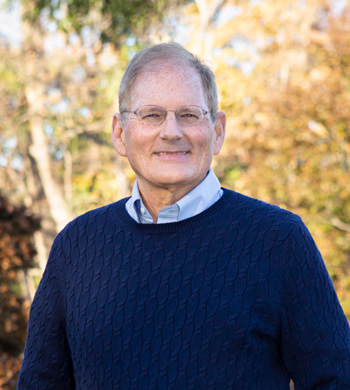Signifier® Medical Technologies appoints David Ritscher as Chief Engineer
David brings significant experience in medical devices and consumer wearables, having researched and commercialized products across several sectors, including sleep.
Boston, MA, USA, and London, United Kingdom
January 12, 2020
Signifier Medical Technologies (“Signifier/the Company”), an innovator in the sleep-disordered breathing market, is pleased to announce the appointment of David Ritscher as Chief Engineer with immediate effect. He will be based in Boston and will be responsible for the Company’s hardware and software development, as well as data science capability. David’s appointment ensures that the Company is prepared to meet its ambitious growth plans and continued innovation.
David is a highly effective R&D leader who has led numerous successful medical and consumer implantable and wearable devices. Most recently, David worked at Cambridge Consultants, where he developed systems ranging from physiology monitoring devices to robotic test systems. He had a focus on predictive analytics applied to disease states.
 Prior to that, David was Director of Research & Development at Whoop. He led a team of world-class scientists and clinical specialists to develop the world’s most accurate wrist-worn health monitor, which became the official monitor of the NFL, helping athletes to train optimally.
Prior to that, David was Director of Research & Development at Whoop. He led a team of world-class scientists and clinical specialists to develop the world’s most accurate wrist-worn health monitor, which became the official monitor of the NFL, helping athletes to train optimally.
Earlier in his career, David was a Senior Principal Scientist at Medtronic where he released products including an implantable cardiac monitor. He holds 12 patents and has published 26 book chapters and papers.
Akhil Tripathi, CEO of Signifier commented: “I’m excited that we’ve added David, a world-class R&D leader, to fuel our journey to treat patients with sleep-disordered breathing. Over the last six months, we’ve been building our management team so we can deliver on the incredible opportunities in front of us.”
David Ritscher added, “I see Signifier’s vision as potentially one of the greatest breakthroughs with the sleep pandemic we are now facing. I expect eXciteOSA® and the follow-on products to revolutionize how we treat sleep apnea and improve patient health.”
For more information, please contact:
Signifier Medical Technologies LLC
Email: [email protected]
Tel: +1 844 645 3672
About Signifier Medical Technologies
Signifier Medical Technologies is a medical technology company focused on the development and commercialization of innovative and non-invasive solutions for patients with sleep-disordered breathing conditions and snoring.
Signifier’s proprietary therapy eXciteOSA® is the first and only daytime genioglossal (tongue) muscle-neurostimulation technology for mild obstructive sleep apnea and snoring, supported by clinical data from prestigious and well-recognized universities and academic institutions, that provides a safe and effective treatment for its patients.1-3
About OSA and Snoring
Nearly 1 billion adults aged 30 to 69 years are estimated to have obstructive sleep apnea (OSA) globally. There is a strong, clinically proven link between OSA and co-morbidities like diabetes, hypertension, and strokes. Mild OSA affects over 110 million people in the US and 100 million people in Europe.
Obstructive sleep apnea is marked by the recurring collapse of the upper airways during sleep. The most common symptoms are restless sleep, snoring, tiredness during the day, decreased intellectual alertness, and personality alterations. Higher risks of cardiovascular diseases and increased mortality rates have been associated with OSA.
Standard therapy of all advanced levels of sleep apnea is with a continuous positive airway pressure (CPAP) device. Many patients find this therapy invasive, and the long-term compliance of CPAP therapy is limited, so there is a clear demand for new forms of treatment.
References
-
White DP. Sleep-related breathing disorder: 2—pathophysiology of obstructive sleep apnoea. Thorax. 1995; 50:797–804. [PubMed: 7570420]
-
Wessolleck E, Bernd E, Dockter S, et al. Intraoral electrical muscle stimulation in the treatment of snoring. Somnologie (Berl). 2018; 22 (Suppl 2): 47–52.
-
Sama A, et al. Daytime Intraoral Neurostimulation with Snoozeal® for Treatment of Snoring and Mild Sleep Apnea. CHEST Annual Meeting Notes. 2018.
-
Clinical study of 115 patients with snoring or mild OSA (Apnea- Hypopnea Index (AHI <15 n=65). Objective snoring and respiratory parameters were recorded with 2 consecutive WatchPat night sleep studies before and after the use of the device. An intra-oral tongue stimulator (Snoozeal®) device was used for 20mins, once a day for 6-week period

